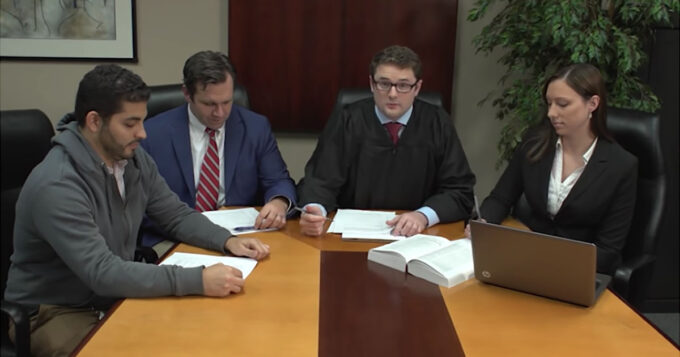When it comes to filing for social security disability claims, many people choose to represent themselves to avoid costly lawyer fees. However, is this really the best course of action? Is SSD winnable without a lawyer?
Well, unfortunately, these are not yes or no questions: the answers can be quite complex. That’s why, in this article, we’ve decided to discuss the topic in detail to give you a better perspective on the subject.
So, without any further ado, let’s get to the bottom of it!
Gathering and management of the relevant medical records

The first step in building your SSD claim has to be gathering appropriate proof. That includes contacting your primary physician and other medical professionals to get your medical records in their written form. Other than that, you’ll need to know whether these documents are usable in your claim or not. Sometimes, you’ll need to update your records and get a more recent examination to make your claim valid. You can do this by yourself, but your attorney can do it much faster and much more accurately.
They can even get you a physical/mental exam scheduled with Social Security Administration, in case you’re lacking sufficient documentation. Overall, yes, you can gather the necessary medical proof by yourself, but an attorney can make it all much easier and faster.
After your application was denied, you’re better off hiring an attorney

If Social Security rejects your initial application, the only thing you can do is to appeal. Now, knowing where you went wrong the first time can be quite difficult to determine. Besides, after you’ve been rejected, your case SSD case becomes much more complex, which lowers your chances of success. Now, we’re not saying you won’t be able to appeal successfully! With enough preparation and research, you can certainly succeed in getting your SSD approved. However, hiring a reliable attorney can make the entire process much easier for everyone involved. A legal professional has sufficient knowledge and experience to determine the best ways you can appeal to SSA’s decision.
Generally, if your original claim has been rejected, hiring an attorney is the safest way to turn the situation to your advantage. It takes away the stress of it all, so it’s certainly worth considering.
Getting your doctor’s opinion

Besides medical records, you’ll also need to acquire your doctor’s objective opinion on your health (either physical and mental). Now, don’t worry, you won’t have to guide your doctor through the process; They’ll be filling an RFC form. As you can probably guess, there are two types of RFC forms: one that deals with your mental capabilities and the other that assesses your physical health. Your doctor may charge you a small fee for this service, but it’s what can make or break your case, so don’t forget to acquire it.
As you can see, it won’t take you much time nor energy to get these forms filled. However, sometimes these forms won’t be sufficient, and it’s your job to recognize such instances. If too much time has passed from the last time you had a medical examination, these forms might be incomplete. Your doctor can only write the info they have available, so ensure there’s recent data out there somewhere.
If all of this seems like too much of a hassle, don’t hesitate to consult with a legal professional instead. A good lawyer will be to get ahold of your doctor much faster, and they’ll immediately know whether the info is usable in court or not.
Disability hearing

Let’s be realistic: nobody likes court hearings. It’s an anxiety-inducing experience that requires a lot of mental preparation and planning. Knowing what to say and what not to say requires a lot of experience, so the entire situation can get confusing for a legal nonprofessional. The administrative law judge, assisted by a vocational expert, will probably ask you to clarify the inconsistencies in your documentation. You’ll also need to be prepared to cross-examine the vocational expert if they argue that you can still work (the judge will mostly listen to their opinion to make a decision).
As you can probably see, the disability hearing can be quite exhausting, especially when the stakes are so high. Having to go over the entire process from the beginning if you get denied is something that’s best avoided. Of course, if your case is simple and straightforward, you can still manage to win the SSD. Still, if you want to increase your chances of success by a mile and put your mind at ease while you’re at it, hiring lawyer is the best choice to make.
Your lawyer has enough experience to know what the right counter-argument is at all times, so once the VE starts disputing your claim, so you can rest assured you’ll get what you came for.
The statistics

According to some research, people who’re represented by a lawyer are much more likely to win their SSD claims than those who choose to represent themselves. In fact, recent government reports show that those applicants who used representatives were allowed benefits three times as often as those without any lawyers at their side. Of course, if you’re adamant about going solo to court, don’t get discouraged! Every case is different, and people still do win their cases without hiring a representative.
Still, consulting with a social security disability lawyer can be extremely beneficial to your case. You can read more about it here, but the overall gist is that a social security disability lawyer can substantially increase your chances of winning your claim.
The final verdict

All in all, yes, you can win social security disability without the help of a lawyer. However, representing yourself does make things a bit more difficult. Statistically speaking, you’re more likely to get rejected if you choose not to hire a legal representative. The law doesn’t require you to hire a disability attorney, but it’s still a safer way to get things done.
At the end of the day, your choice will depend on your specific circumstances, knowledge, and confidence. If your case is simple and you’re knowledgeable enough to present it in court, there’s nothing to be afraid of. On the other hand, if you feel like the process may be too overwhelming for you, don’t hesitate to seek professional assistance.









